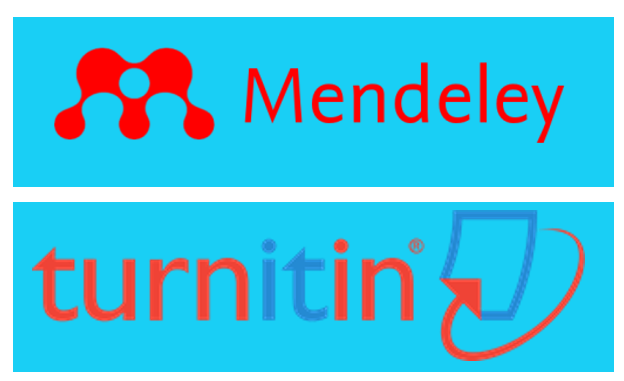Enhancing the Academic Writing Process Using Artificial Intelligence: A Bibliometric
DOI:
https://doi.org/10.32734/djd9kz89Keywords:
Artificial Intelligence, Writing Process, English Educational TechnologyAbstract
This systematic literature review (SLR) examines the limitations of Artificial Intelligence (AI) writing assistant tools and their implications for education. The study identifies six critical shortcomings: (1) lack of academic rigor, (2) insufficient knowledge base, (3) inability to synthesize complex ideas, (4) absence of human cognitive abilities, (5) limited adaptability, and (6) questionable originality. The review highlights the challenges of engaging students with diverse emotional and cognitive characteristics, supported by statistical insights into emotional and cognitive engagement. It explores the ethical considerations and potential impacts of AI technologies on academic integrity and credibility. The findings also encompass a comparative analysis of AI models like Gemini and ChatGPT, their applications in various educational contexts, and their effectiveness in tasks such as feedback mechanisms and assessment techniques. Findings underscore the tools' potential to enhance engagement and comprehension while emphasizing the need for balanced integration with human input to preserve academic credibility. This research highlights AI's transformative yet limited role in education, advocating for responsible use and continuous evaluation.
Downloads
References
Agbo, B., Morris, C., Osman, M., Basketts, J., & Kyriacou, T. (2024). A systematic literature review on software applications used to support curriculum development and delivery in primary and secondary education. International Journal of Educational Research Open, 7. https://doi.org/10.1016/j.ijedro.2024.100385
Altynbassov, B., Bayanbayeva, A., Tolegen, M., & Zhamankarin, M. (2024). A comprehensive bibliometric analysis of trends in higher education leadership in the Global South, 2013-2023: Contemporary perspectives and developments. International Journal of Educational Research, 127. https://doi.org/10.1016/j.ijer.2024.102421
Avramovic, S., & Avramovic, I. (n.d.). An Examination of ChatGBT’s Performance on Assessments 193 Exploring the Potential Benefits and Limitations of Using an AI Text-Generation Tool in Education: An Examination of ChatGPT’s Performance on Assessments.
Baig, M. I., & Yadegaridehkordi, E. (2024). ChatGPT in the higher education: A systematic literature review and research challenges. International Journal of Educational Research, 127. https://doi.org/10.1016/j.ijer.2024.102411
Challco, G. C., Silva, W. V. da, Setton Gonçalves, B., de Almeida Levino, N. D., Bittencourt, I. M., Kaczam, F., de Oliveira, E. H. T., Martins, F. P., de Lima Filho, W. A., de Araújo, R. F., Bittencourt, I. I., & Paiva, R. O. A. (2024). Blended learning and media centers: A bibliometric analysis. Social Sciences and Humanities Open, 10. https://doi.org/10.1016/j.ssaho.2024.100919
Conde, M., & Rodríguez-Sedano, F. J. (2024). Is learning analytics applicable and applied to education of students with intellectual/developmental disabilities? A systematic literature review. Computers in Human Behavior, 155. https://doi.org/10.1016/j.chb.2024.108184
Dergaa, I., Chamari, K., Zmijewski, P., & Saad, H. Ben. (2023). From human writing to artificial intelligence generated text: examining the prospects and potential threats of ChatGPT in academic writing. Biology of Sport, 40(2), 615–622. https://doi.org/10.5114/BIOLSPORT.2023.125623
Frick, T. W. (2024). Are We Dupes? Limitations of AI Systems: What Should Educators Do with Them? TechTrends, 68(1), 14–26. https://doi.org/10.1007/s11528-023-00893-3
Hung, K., Yeung, A. W. K., Tanaka, R., & Bornstein, M. M. (2020). Current applications, opportunities, and limitations of AI for 3D imaging in dental research and practice. In International Journal of Environmental Research and Public Health (Vol. 17, Issue 12, pp. 1–18). MDPI AG. https://doi.org/10.3390/ijerph17124424
Jacobi, T., & Sag, M. (n.d.). We are the AI problem. https://arxiv.org/pdf/1609.07236.pdf
Kharchenko, Y. V, & Babenko, O. M. (2024). Advantages and limitations of large language models in chemistry education: A comparative analysis of ChatGPT, Gemini and Copilot. https://scholar.google.com.ua/citations?user=zYiU4iMAAAAJ
Leschanowsky, A., Rech, S., Popp, B., & Bäckström, T. (2024). Evaluating privacy, security, and trust perceptions in conversational AI: A systematic review. Computers in Human Behavior, 159. https://doi.org/10.1016/j.chb.2024.108344
Li, J., Jangamreddy, N., Bhansali, R., Hisamoto, R., Zaphir, L., Dyda, A., & Glencross, M. (n.d.). AI-assisted marking: Functionality and limitations of ChatGPT in written assessment evaluation. In Australasian Journal of Educational Technology (Vol. 2024, Issue 4).
Lingard, L. (2023). Writing with ChatGPT: An Illustration of its Capacity, Limitations & Implications for Academic Writers. In Perspectives on Medical Education (Vol. 12, Issue 1, pp. 261–270). Ubiquity Press. https://doi.org/10.5334/pme.1072
Nazari, N., Shabbir, M. S., & Setiawan, R. (2021). Application of Artificial Intelligence powered digital writing assistant in higher education: randomized controlled trial. Heliyon, 7(5). https://doi.org/10.1016/j.heliyon.2021.e07014
Nor Hazimah Wan Azib, W., Zazira Hashim, M., Abdul Rahman, K., Mohd Ishak, F., Yusoff, Y., Shaliza Sapiai, N., Kelantan, C., Azib, W., Rahman, A., & Ishak, M. (2024). highlighting the artificial intelligence (ai) limitations as writing assistant tools in producing academic writing outputs: a narrative review. Journal of Islamic, Social, Economics and Development, 128–1755. https://doi.org/10.55573/JISED.096434
Rane, N. (2024). Role and challenges of ChatGPT, Gemini, and similar generative artificial intelligence in human resource management. Studies in Economics and Business Relations, 5(1), 11–23. https://doi.org/10.48185/sebr.v5i1.1001
Rane, N., Choudhary, S., & Rane, J. (2024). Gemini versus ChatGPT: applications, performance, architecture, capabilities, and implementation. Journal of Applied Artificial Intelligence, 5(1), 69–93. https://doi.org/10.48185/jaai.v5i1.1052
Rizky Ananda, D., & Salmiah, M. (2024). Linguistics and English Language Teaching Journal Students’ Perceptions on AI Technology: Gemini as a Writing Assistant Tool. 12(1).
Sholeh, M., Rusydiyah, E. F., & Abu Bakar, M. Y. (2024). Integration of AI Chatbots in Islamic Religious Education: Potential and Challenges from a Doctoral Student Perspective. AL-ISHLAH: Jurnal Pendidikan, 16(2). https://doi.org/10.35445/alishlah.v16i2.5409
Tusquellas, N., Palau, R., & Santiago, R. (2024). Analysis of the potential of artificial intelligence for professional development and talent management: A systematic literature review. International Journal of Information Management Data Insights, 4(2). https://doi.org/10.1016/j.jjimei.2024.100288
Downloads
Published
Issue
Section
License
Copyright (c) 2024 Euis Yanah Mulyanah, Soleh Hidayat, Yuyu Yuhana, Ishak (Author)

This work is licensed under a Creative Commons Attribution 4.0 International License.
- Authors agree to publish their work under the Creative Commons Attribution 4.0 International (CC BY 4.0) license.
- Authors retain copyright to their work and may reuse or distribute it.
- HUMANIOLA reserves the right to request revisions and make final publication decisions.
- Authors are responsible for ensuring that their work does not infringe upon third-party copyrights.
- Archiving in digital repositories may be done for long-term access and preservation.






